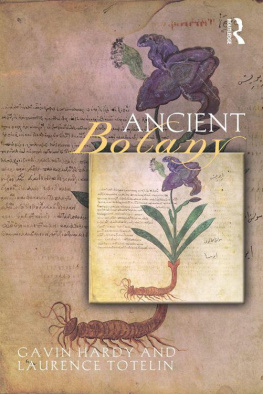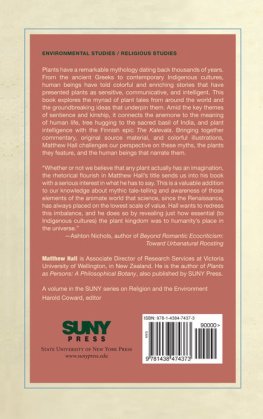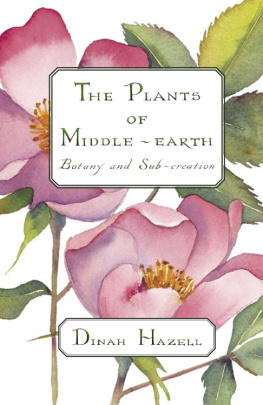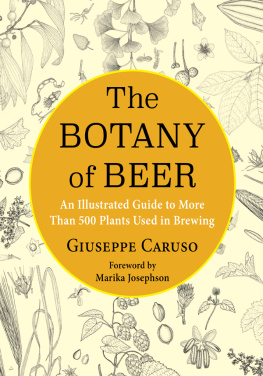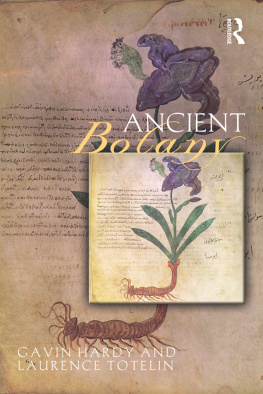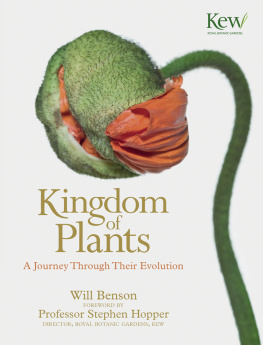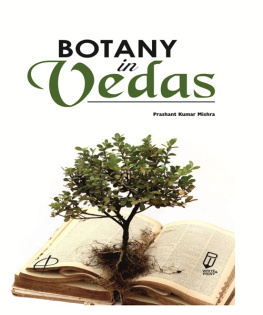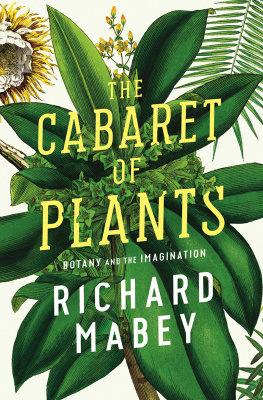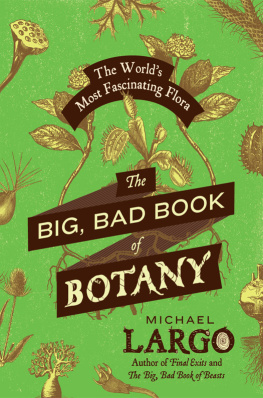Gavin Hardy and Laurence Totelin have brought together their botanical and historical knowledge to produce this unique overview of ancient botany. It examines all the founding texts of botanical science, such as Theophrastus Enquiry into Plants, Dioscorides Materia Medica, Pliny the Elders Natural History, Nicolaus of Damascus On Plants, and Galens On Simple Remedies, but also includes lesser-known texts ranging from the sixth century BCE to the seventh century CE, as well as some material evidence. The authors adopt a thematic approach rather than a chronological one, considering important issues such as the definition of a plant, nomenclature, classification, physiology, the link between plants and their environment, and the numerous usages of plants in the ancient world. The book also takes care to place ancient botany in its historical, social and economic context. The authors have explained all technical botanical terms and ancient history notions, and as a result, this work will appeal to historians of ancient science, medicine and technology; classicists; and botanists interested in the history of their discipline.
SCIENCES OF ANTIQUITY
Series editor: Liba Taub
Director, The Whipple Museum of the History of Science,
University of Cambridge
Sciences of Antiquity is a series designed to cover the subject matter of what we call science. The volumes discuss how the ancients saw, interpreted and handled the natural world, from the elements to the most complex of living things. Their discussions on these matters formed a resource for those who later worked on the same topics, including scientists. The intention of this series is to show what it was in the aims, expectations, problems and circumstances of the ancient writers that formed the nature of what they wrote. A consequent purpose is to provide historians with an understanding of the materials out of which later writers, rather than passively receiving and transmitting ancient ideas, constructed their own world-view.
MEDICINE IN ANTIQUITY
Vivian Nutton
TIME IN ANTIQUITY
Robert Hannah
ANCIENT ASTROLOGY
Tamsyn Barton
ANCIENT NATURAL HISTORY
Roger French
COSMOLOGY IN ANTIQUITY
M. R. Wright
ANCIENT MATHEMATICS
S. Cuomo
ANCIENT METEOROLOGY
Liba Taub
Ancient Botany
Gavin Hardy and Laurence Totelin
First published 2016
by Routledge
2 Park Square, Milton Park, Abingdon, Oxon OX14 4RN
and by Routledge
711 Third Avenue, New York, NY 10017
Routledge is an imprint of the Taylor & Francis Group, an informa business
2016 Gavin Hardy and Laurence Totelin
The right of gavin Hardy and Laurence Totelin to be identified as authors of this work has been asserted by them in accordance with sections 77 and 78 of the Copyright, Designs and Patents Act 1988.
All rights reserved. No part of this book may be reprinted or reproduced or utilised in any form or by any electronic, mechanical, or other means, now known or hereafter invented, including photocopying and recording, or in any information storage or retrieval system, without permission in writing from the publishers.
Trademark notice: Product or corporate names may be trademarks or registered trademarks, and are used only for identification and explanation without intent to infringe.
British Library Cataloguing-in-Publication Data
A catalogue record for this book is available from the British Library
Library of Congress Cataloging- in-Publication Data
Hardy, F. G.
Ancient botany / Gavin Hardy and Laurence M.V. Totelin.
pages cm. (Sciences of antiquity)
Includes bibliographical references and indexes.
1. Botany, MedicalGreeceHistory. 2. Botany, MedicalRomeHistory. 3. BotanyGreeceHistory.
4. BotanyRomeHistory. 5. Materia medica, Vegetable. 6. Medicine, Greek and Roman. I. Totelin,
Laurence M. V. II. Title.
RS63.H37 2015
615.10945632dc23
2015012293
ISBN 978-0-415-31119-9 (hbk)
ISBN 978-0-415-31120-5 (pbk)
ISBN 978-0-203-45835-8 (ebk)
Typeset in Times New Roman
by Wearset Ltd, Boldon, Tyne and Wear
Contents
Maps
Figures
This book was a long time in the making. In 2000, Roger French and Gavin Hardy planned to write a book on Ancient Botany for the Routledge Series on Ancient Science. Unfortunately, Roger French passed away shortly after work was initiated on the project, on May 14, 2002. Gavin Hardy produced a first draft of the book, but felt the project would benefit from the skills of a historian of ancient science. In 2010, Laurence Totelin came on board and added her classical expertise to the project. She gave the book its current chapter organisation and integrated Gavins initial draft into the book you are now reading.
Many people contributed to the writing of this book. Our heartfelt thanks go to Liba Taub, who put us in touch and offered detailed comments on the entire manuscript. Philip van der Eijk, Michael Herchenbach, James Longrigg, Dunstan Lowe, Elizabeth Macaulay-Lewis, Vivian Nutton, Thomas Rtten and John Scarborough answered numerous questions and provided information on various points of detail. Caroline Musgrove read through the entire manuscript, smoothing out style and checking references. We are extremely thankful for her help. Philip Hughes assisted with the drawing of the maps.
Laurence presented papers that became chapters of this book to audiences at Newcastle, School of History, Classics and Archaeology; at Cambridge, Department of History and Philosophy of Science; at the Annual Colloquium of Classics and Ancient History at Gregynog Hall, Wales; at the Ancient Greek and Roman Scientific, Medical and Technical Writing workshops, organised by the Excellence Cluster Topoi, Berlin; and at Princeton, Department of Classics. We wish to thank these audiences for their perceptive questions.
Our thanks also go to our students: students attending Gavins courses on Ancient Botany and The Development of Medical Botany in the Office of Lifelong Learning at the University of Edinburgh; and students attending Laurences course on Greek and Roman Medicine and Science and Technology in the Graeco-Roman World in the School of History, Archaeology and Religion, Cardiff University.
We benefited immensely from the help of the staff at the numerous libraries where we conducted our research, and at the libraries and museums where we ordered the images that illustrate this book. Particular thanks go to the staff at the Wellcome Library, London and at the sterreichische Nationalbibliothek, Vienna.
On a more personal note, our thanks go to our colleagues who discussed our ideas on a more informal basis. In particular, Gavin wishes to thank Martin Wheeler, and Laurence wishes to thank Guy Bradley, Kate Gilliver, Fay Glinister, Stephen Lambert, Shaun Tougher, Ruth Westgate and James Whitley. Laurence is also grateful to Thomas and Gwilym for their patience.
Finally, when writing this book, we terribly missed the input of two scholars: Roger French and Robert (Bob) Sharples. This book is dedicated to their memory.
This book will, we hope, appeal both to students of ancient Greek and Roman societies and to modern botanists with an interest in the history of their discipline. Conventions that are familiar to one group of readers may not be to the other, and for this reason we have chosen to spell things out here.

